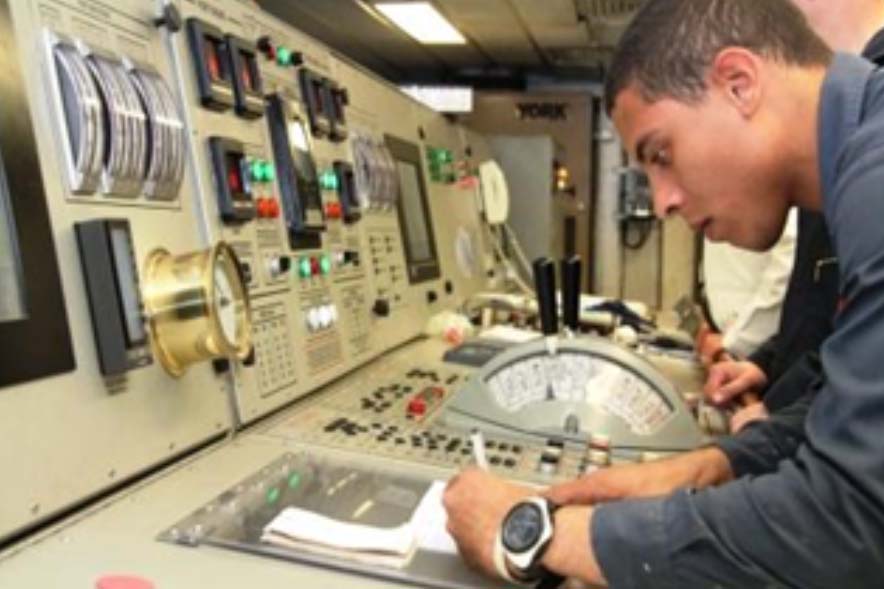What do you like most about your job?
...."standing between two main engines while we are full away; the car size turbo-chargers whining, the "rumble", is very awe inspiring. Then to think, it's your responsibility!"...
Answer from a junior Engineer

This is a program required for those seeking a QMED – Junior Engineer endorsement. It will satisfy the professional examination requirements for 46 CFR 12.501(c)(5) for a national rating endorsement as QMED-Junior Engineer.
Any applicant who successfully completed the course, including specific assessments from the Guidelines for Qualification for STCW Endorsements as Rating Forming Part of an Engineering Watch, NVIC 07-14 will satisfy the assessment requirements of 46 CFR 12.609(a)(3) and Table A-III/4 of the Seafarers’ Training, Certification and Watchkeeping (STCW) Code, as amended, 2010, Specification of Minimum Standard of Competence for Ratings Forming Part of an Engineering Watch.
Shipboard equipment and systems: Air conditioning, Ballast, Bilge, Compressed air, Desalination, Fuel oil storage/transfer, Fuel treatment, Heating/ventilation, Lubrication, Potable water, Refrigeration, Sanitary/sewage, Steering
Motor propulsion: Air-charge systems, Cooling water systems, Diesel engine principles, Drive systems, Fuel service systems, Intake/exhaust, Lubrication systems, Starting systems, Waste heat/auxiliary boiler
Steam propulsion: Auxiliary turbines, Boiler fundamentals, Combustion principles, Condensate systems, Drive systems, Feedwater systems, Fuel service systems, Maintenance, Safety, Steam fundamentals, Turbine fundamentals
General Engineering Knowledge: Auxiliary machinery, Basic safety procedures, Bearings, Care of equipment-machine parts, Deck machinery, Drawings and tables, Heat exchangers, Hydraulic principles, Instrumentation principles, Lubrication principles, Maintenance procedures, Measuring instruments, Pipes, fittings, and valves, Pollution prevention, Properties of fuel, Pumps, fans, and blowers, Refrigeration principles, Remote control equipment, Use of hand/power tools, Watch duties
Electrical: A/C circuits, Batteries, Calculations, Communication devices, D/C circuits, Distribution systems, Electronic principles, Generation equipment, Maintenance, Measuring devices, Motor controllers, Motors
Safety: Safety and environmental protection, Communications, Damage control, Elementary first aid, Emergency equipment, Environmental awareness, Fire prevention, Firefighting equipment, Firefighting principles, General safety, Hazardous materials
Upon registration, courses are conveniently accessible online for candidates to participate at their own pace and on their own schedule.